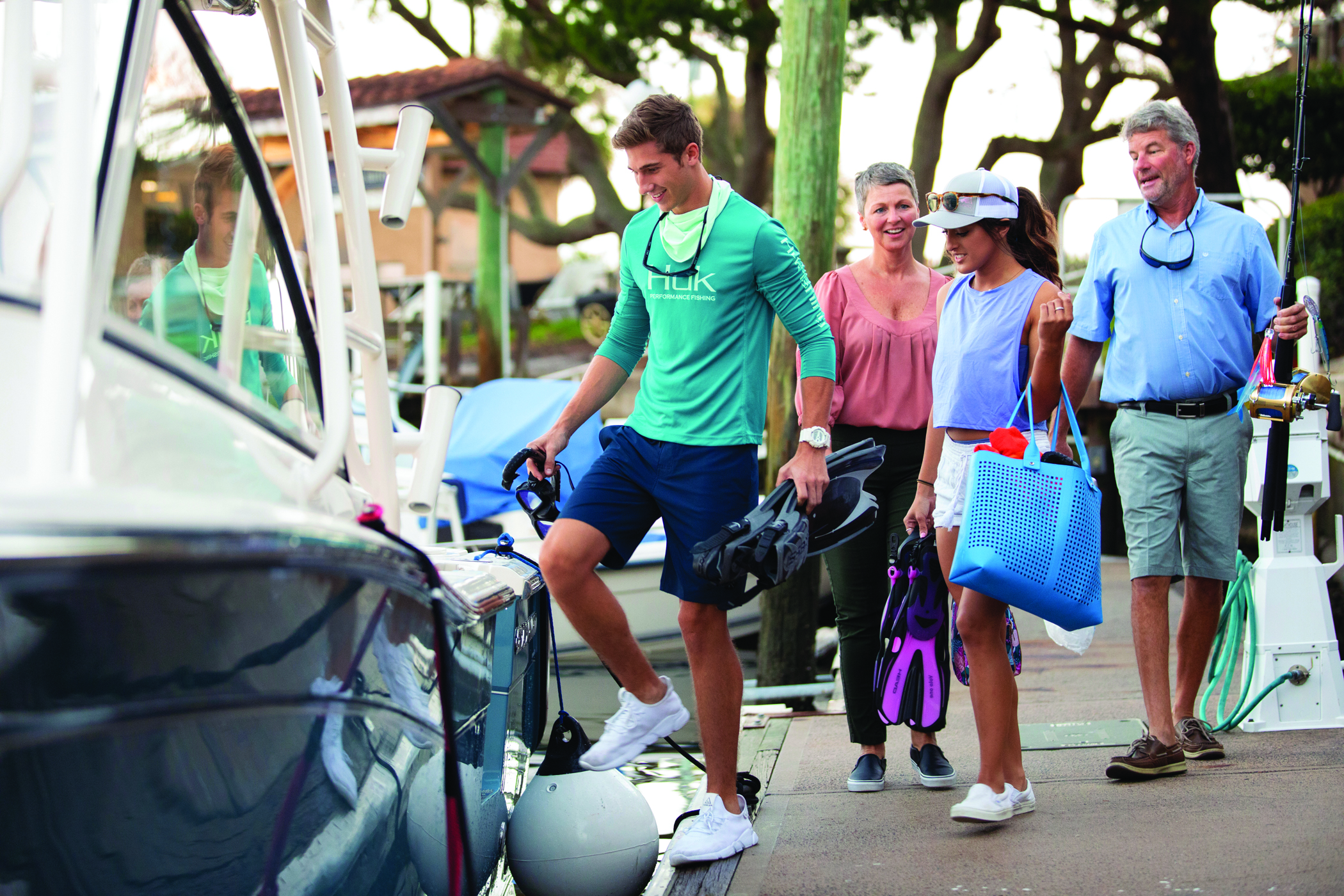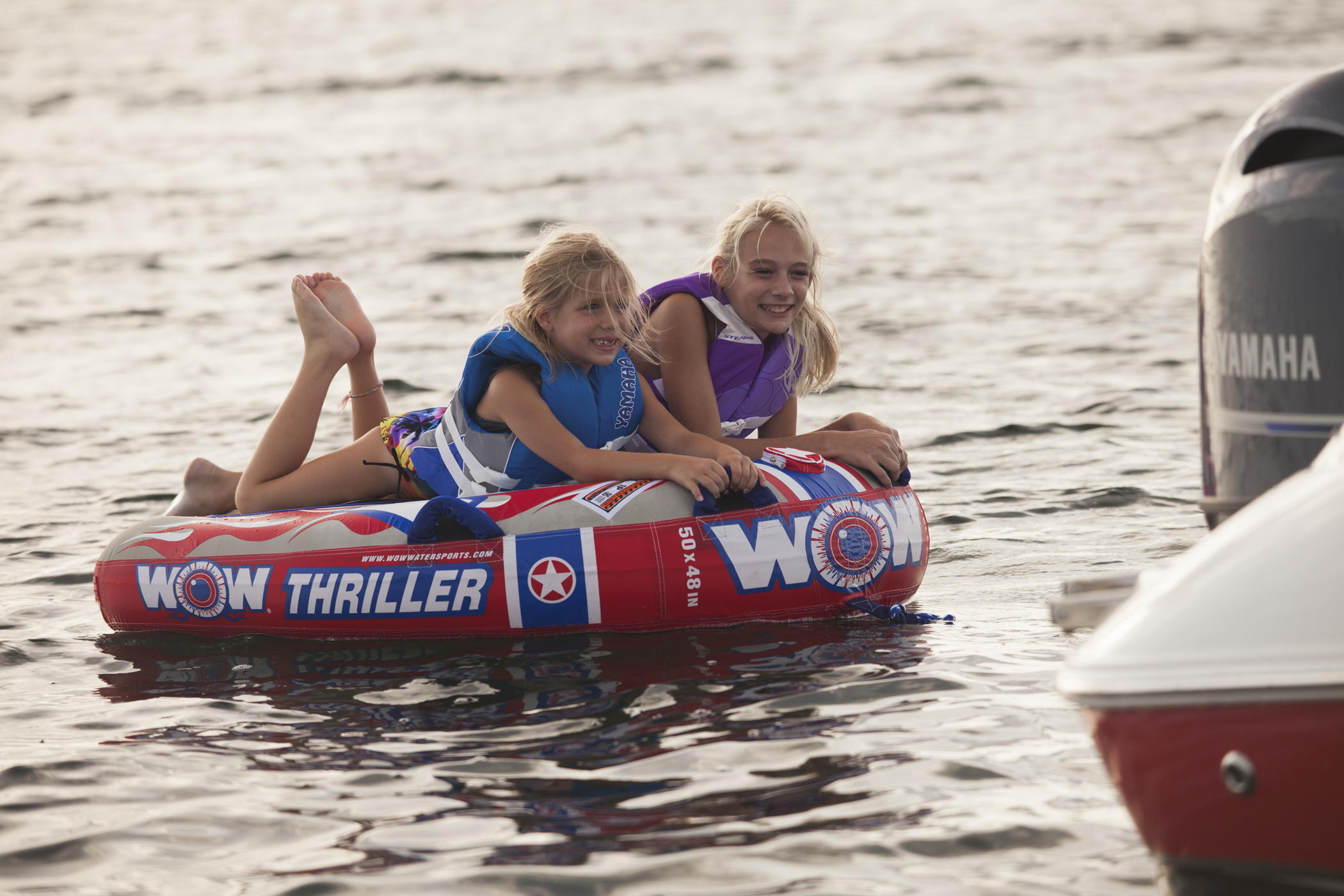The boating lifestyle has its own set of official rules that we’ve covered in previous editions of the Boater’s Log series. In addition to the governmental mandates, a big part of being a safe, responsible boater is becoming familiar with the fundamentals of nautical courtesies.
We’re not going to get into the minutiae of the hardcore yachting community – there are entire volumes dedicated to these age-old protocols – we just want offer some insights on applying common-sense manners while you’re out on the water.
Launching and Retrieving
On the weekends, boat ramps are often quite busy, and otherwise nice people can become frazzled when they’re supposed to be relaxing.

One of the biggest gripes is about the weekend warrior who backs the boat and trailer down the ramp, stops the truck to put the drain plug in, deploy the fenders, tie the lines on the cleats, remove the tie-down straps, and all the other pre-flight chores that should’ve been done while he was waiting in line.
Don’t be this person; get your boat completely ready to go so when the trailer hits the water, you can light the engine, and get clear of the trailer so your tow vehicle driver can get out of the way for the next person in line.
On a similar note, when it’s time to put the boat on the trailer, as you’re idling to the dock/ramp, hang the fenders, and have the lines ready. Nose up to the dock to let the tow vehicle driver off, then back out of the way of other boaters until your trailer is in the water and it’s your turn to load up.
Practice backing your boat trailer (a lot) before you actually go the boat ramp. Your confidence level will be higher, and the stress level of your fellow boaters might actually be lower if you can spot the trailer on the first or second shot.
If you’re waiting your turn to launch and your boat is all set, have a crewmember sit in the tow vehicle (to move the truck if necessary). Mosey down to the dock/ramp and offer to help less-experienced boaters with dock lines, fenders, and perhaps a reminder to trim the engine up all the way before pulling the boat out of the water.
Underway
One of the greatest joys of boating is to escape the confines of the real world; however, it’s bad form (and quite illegal) to endanger other vessels and their occupants.

For example, if you see a boat pulling wakeboards, water toys or skiers, stay away from them; find another part of the lake.
Fishing boats are another consideration. Oftentimes, anglers will be trolling – meaning that there are likely stout lines extending several boat lengths aft (and to the sides) of the fishing vessel. Give them plenty of room.
We realize that some waterways are crowded, but you are responsible for your boat’s wake; please give them plenty of room.
Miscellaneous Niceties
Guests
• Never board someone else’s boat without asking permission or being invited
• Wear shoes with non-marking soles – no high heels on deck
• Bring appropriate clothing (seasonal, rain gear, etc.)
• Ask the captain/owner what you can do to help
• Make sure you know where the life jackets and emergency gear are stowed
• Do not touch anything mechanical or electronic without the captain’s supervision
• Ask before using the head
• If you use tobacco, ask permission before use
• Offer to pay expenses
• Stick around to help clean the boat after the voyage – it’s the right thing to do, and the captain will probably appreciate your assistance

By the Way
Make it a habit to wave to other boaters. From a safety perspective, exchanging waves means the other captain sees you. A friendly wave can reinforce the fun factor we boat-heads love.
From a practicality standpoint, by waving at every boat you meet, you’ve established a casual bond with another boater – and you never know when you might need a tow back to the dock.
Back to Blue Life
We’re not going to get into the minutiae of the hardcore yachting community – there are entire volumes dedicated to these age-old protocols – we just want offer some insights on applying common-sense manners while you’re out on the water.
Launching and Retrieving
On the weekends, boat ramps are often quite busy, and otherwise nice people can become frazzled when they’re supposed to be relaxing.

One of the biggest gripes is about the weekend warrior who backs the boat and trailer down the ramp, stops the truck to put the drain plug in, deploy the fenders, tie the lines on the cleats, remove the tie-down straps, and all the other pre-flight chores that should’ve been done while he was waiting in line.
Don’t be this person; get your boat completely ready to go so when the trailer hits the water, you can light the engine, and get clear of the trailer so your tow vehicle driver can get out of the way for the next person in line.
On a similar note, when it’s time to put the boat on the trailer, as you’re idling to the dock/ramp, hang the fenders, and have the lines ready. Nose up to the dock to let the tow vehicle driver off, then back out of the way of other boaters until your trailer is in the water and it’s your turn to load up.
Practice backing your boat trailer (a lot) before you actually go the boat ramp. Your confidence level will be higher, and the stress level of your fellow boaters might actually be lower if you can spot the trailer on the first or second shot.
If you’re waiting your turn to launch and your boat is all set, have a crewmember sit in the tow vehicle (to move the truck if necessary). Mosey down to the dock/ramp and offer to help less-experienced boaters with dock lines, fenders, and perhaps a reminder to trim the engine up all the way before pulling the boat out of the water.
Underway
One of the greatest joys of boating is to escape the confines of the real world; however, it’s bad form (and quite illegal) to endanger other vessels and their occupants.

For example, if you see a boat pulling wakeboards, water toys or skiers, stay away from them; find another part of the lake.
Fishing boats are another consideration. Oftentimes, anglers will be trolling – meaning that there are likely stout lines extending several boat lengths aft (and to the sides) of the fishing vessel. Give them plenty of room.
We realize that some waterways are crowded, but you are responsible for your boat’s wake; please give them plenty of room.
Miscellaneous Niceties
Guests
• Never board someone else’s boat without asking permission or being invited
• Wear shoes with non-marking soles – no high heels on deck
• Bring appropriate clothing (seasonal, rain gear, etc.)
• Ask the captain/owner what you can do to help
• Make sure you know where the life jackets and emergency gear are stowed
• Do not touch anything mechanical or electronic without the captain’s supervision
• Ask before using the head
• If you use tobacco, ask permission before use
• Offer to pay expenses
• Stick around to help clean the boat after the voyage – it’s the right thing to do, and the captain will probably appreciate your assistance

By the Way
Make it a habit to wave to other boaters. From a safety perspective, exchanging waves means the other captain sees you. A friendly wave can reinforce the fun factor we boat-heads love.
From a practicality standpoint, by waving at every boat you meet, you’ve established a casual bond with another boater – and you never know when you might need a tow back to the dock.
Back to Blue Life
